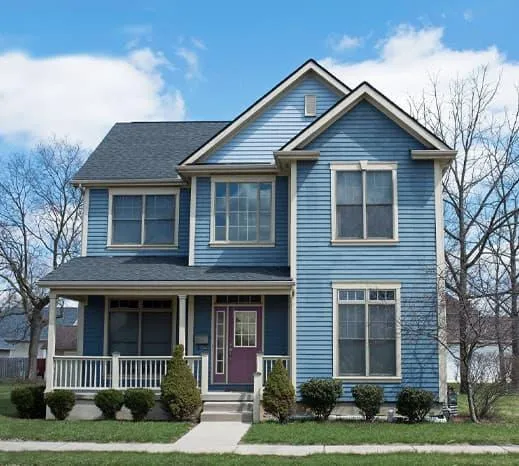
Aluminum Wiring in Homes: What You Need to Know | Voltage Ventures
If your house was built between the mid-60s and late 70s, there’s a chance it was wired with aluminum.
And if it was?
You should know what that means for your safety, your insurance, and your wallet.
Here’s everything you need to know about aluminum wiring, and how Voltage Ventures can help you be safe.
What is Aluminum Wiring, Anyway?
Aluminum wiring was a cheaper alternative to copper back in the day.
It was mostly used between 1965 and 1978, especially in residential homes across Canada.
It does the same job as copper - deliver electricity - but it doesn’t age nearly as well.
Aluminum expands and contracts more, gets brittle over time, and oxidizes when exposed to air.
This can loosen connections and cause overheating.
And yep, that’s a fire risk.
Why Is Aluminum Wiring a Problem?
Here’s the thing: aluminum itself isn’t dangerous - but how it behaves in older homes often is.
Let’s break it down:
Loose connections = sparks and heat
Oxidation = poor conductivity
Overheating = melted insulation or worse
It’s especially risky when aluminum wiring is connected to outlets and switches not rated for aluminum.
These mismatches can quietly cause damage behind your walls
Warning Signs You Might Have a Problem
Lights flicker when large appliances turn on
Outlets or switches feel warm
You smell something “electrical” (burning plastic or metal)
Circuit breakers trip often without a clear cause
If you’ve noticed any of those, it’s time to get your wiring checked.
Does Aluminum Wiring Affect Home Insurance in Manitoba?
Short answer: yes.
Most insurers in Manitoba will want to know if your home has aluminum wiring.
Some might:
Refuse to insure you until it’s been inspected
Demand proof that it’s been professionally remediated
Charge higher premiums due to the fire risk
If you’re buying or selling a home, it’s a bigger deal.
Many realtors recommend getting it checked before listing.
And remember - insurance companies talk.
If your wiring fails an inspection or causes a claim, it can follow you to your next policy.
How Do You Know If Your Home Has Aluminum Wiring?
If your house was built before 1980, it’s worth checking.
Here’s how:
Check Your Electrical Panel
Look for markings like:
“AL” or “ALUM” on the cables
Circuit breakers labelled with aluminum-compatible parts
Call a Licensed Electrician
They’ll confirm it with a quick inspection and might suggest a thermal scan to check for hotspots.
Look at Your Utility Bill or Home Inspection Report
Some reports list the wiring type. Still unsure? We can check for you.
What Can You Do About Aluminum Wiring?
You’ve got a few options - some cost more, some are faster, but all are safer than ignoring the problem.
Option 1: Full Replacement (Best, but expensive)
This means removing all aluminum and rewiring with copper.
It’s expensive, especially in finished homes, but it’s the most future-proof solution.
Option 2: Pigtailing (Most Common)
Electricians attach short copper wires to the ends of aluminum wiring, using special connectors.
This reduces risk without a full rewire.
Important: Not just any connector will do. You need ones approved for aluminum-to-copper, like AlumiConn or COPALUM crimping.
Option 3: Replace Outlets and Switches
Only works if done with aluminum-rated devices - and it’s not usually enough by itself.
What Manitoba Law Says About Aluminum Wiring
Aluminum wiring isn’t illegal in Manitoba, but if you’re upgrading or renovating, the Manitoba Electrical Code requires you to meet current safety standards.
That usually means:
Using the right connectors
Having the work inspected
Hiring a licensed electrician
Voltage Ventures is fully licensed and trained to handle aluminum remediation across Manitoba - so you can rest easy knowing it’s done right.
So Should You Replace It?
Not always.
If it’s in good condition and properly maintained, you may just need remediation - not a full rewire.
But if:
You’re planning major renovations
You’ve had overheating issues
Your insurance is asking questions
You want peace of mind
…then yes, replacement might be worth it.
Final Thoughts: Don’t Wait Until It’s a Problem
Aluminum wiring might sound scary, but the fix doesn’t have to be.
At Voltage Ventures, we specialize in inspecting, remediating, and upgrading aluminum wiring across Manitoba - so you don’t have to second-guess your electrical system (or your insurance coverage).
Get in touch today to book a home inspection or ask us anything.
We’ll give you a clear plan with no pressure.
Because your home should be wired for peace of mind.
FAQ
Is aluminum wiring legal in Canada?
Yes, aluminum wiring is legal in Canada. However, it must be installed and maintained according to current safety codes. Homes with older aluminum wiring often need updated connections to reduce fire risk.
Does aluminum wiring need to be replaced?
Not always. If the wiring is in good condition and properly maintained, full replacement isn’t required. But many electricians recommend upgrading connections or rewiring key areas to avoid overheating and potential hazards.
Is it okay if my house has aluminum wiring?
It can be okay—if the wiring has been inspected and updated for safety. The biggest concern with aluminum wiring is the connection points. With proper upgrades like pigtailing or COPALUM connectors, aluminum wiring can be made safer.
Can you get house insurance with aluminum wiring?
Yes, but it can be tricky. Some insurers may charge higher premiums, require an inspection, or even deny coverage until the wiring is certified safe or upgraded. It’s best to check with your provider and have a licensed electrician inspect the system.
Is it against code to have aluminum wiring?
No, it’s not against code. But the installation must meet current electrical safety standards. The Canadian Electrical Code requires that aluminum wiring connections are made using approved methods and materials to ensure safety and compliance.
